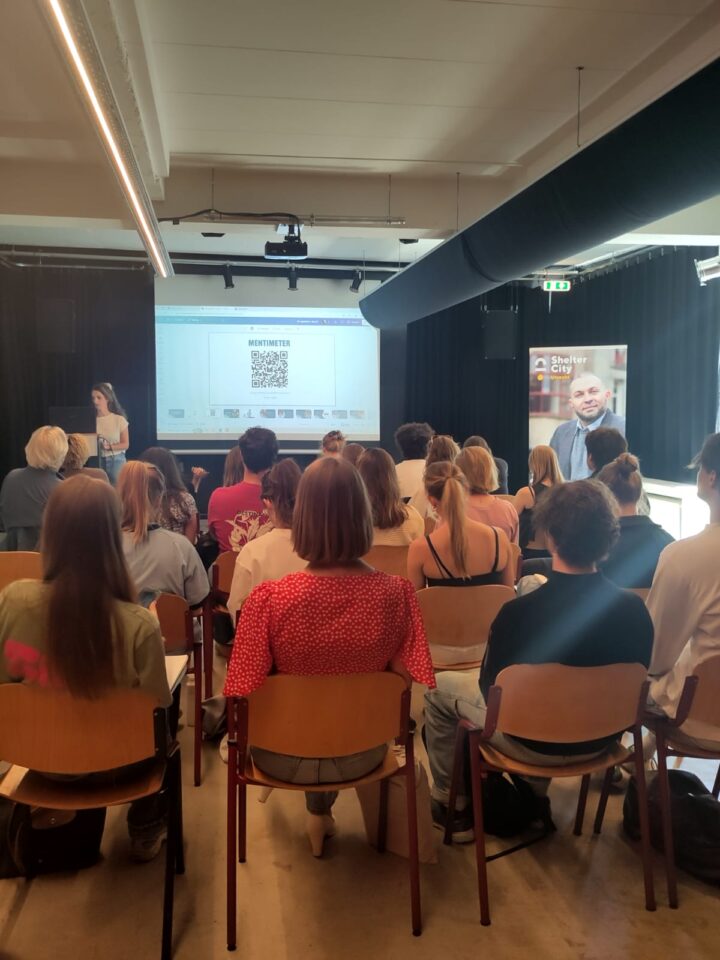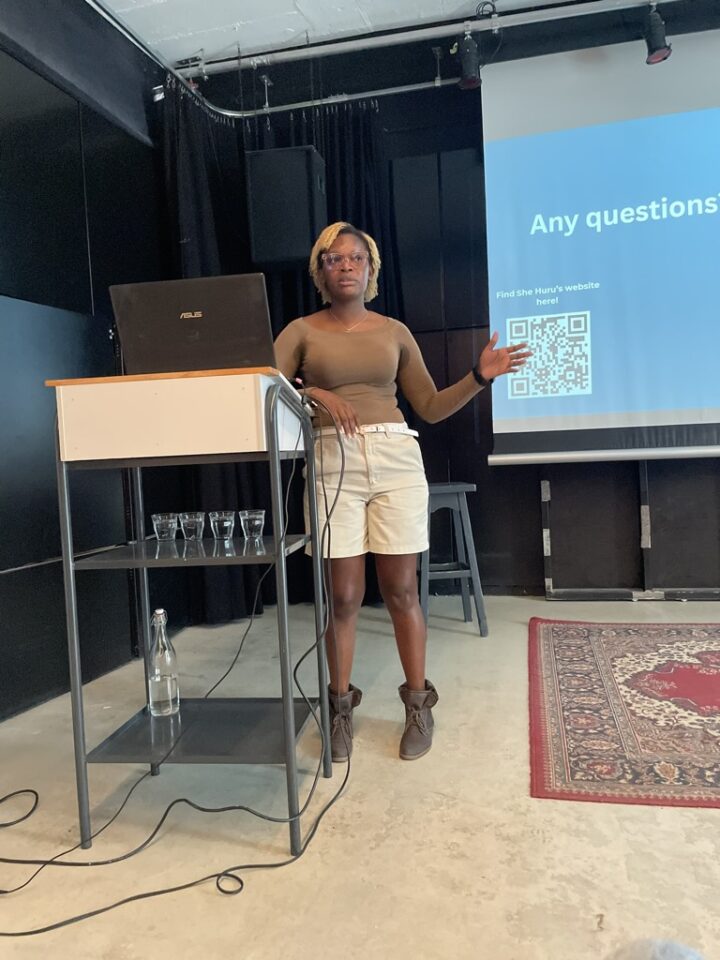As part of their curriculum, a group of anthropology students was tasked with writing an anthropological paper. To help inspire their thinking, a special event was organized where our Shelter City guest Malala was brought to speak about her work as a queer woman human rights defender from Kenya.
Malala began by introducing herself and the work she does in Kenya, advocating for the rights and visibility of the queer community in a country where these rights are still deeply contested. Following her introduction, students engaged in an open discussion, asking thoughtful questions about her activism, personal experiences, and the broader context of LGBTQ+ rights in Kenya. The conversation also allowed us to share more about Shelter City and the essential work we do to support defenders like Malala.
One particularly compelling part of the discussion was when students pointed out how much of Malala’s work overlaps with anthropology. In many ways, Malala takes on the role of an anthropologist in her fight for queer rights. She explained how she often works to demonstrate that queer Kenyan people have always existed, in contrast to the belief held by some that queerness is a Western or GenZ invention.
To do this, she and her peers seek out older queer individuals in Kenyan communities and collect their stories and testimonies. This effort is not only about documenting lives but also about reclaiming history and challenging harmful misconceptions.

Malala also spoke about a book that has been instrumental in shaping her perspective: We’ve Been Here, a compilation of stories from queer Kenyan people. The book, she said, affirms the longstanding presence of queer individuals in Kenyan society and fuels her ongoing mission to foster understanding and integration between the queer community and the broader Kenyan public.
This exchange between Malala and the students proved to be both insightful and inspiring. It offered a deeper understanding of her role, not only as a frontline activist but also as someone who listens, researches, and tells the stories of her community. Her anthropological approach enriches her advocacy, making her efforts to bridge divides all the more impactful.
The event concluded with an informal gathering where students had the opportunity to continue the conversation over drinks, deepening their engagement with Malala and her work. It was a powerful and enriching experience for everyone involved.
Reflections from students – A story of change
For many students, the event with Malala was their first in-depth exposure to LGBTQ+ rights in Kenya. After the session, several attendees shared how Malala’s personal story brought the issues to life in a way that felt both urgent and deeply human.
“It hits differently when someone shares their own experiences.”
Students described learning not only about the legal and political situation in Kenya, but also about the emotional impact of being queer in a country that denies your identity. One participant shared:
“It made me think—what happens to your sense of belonging when the country you’re from doesn’t accept who you are?”
Many left the event with a desire to tell others about what they had heard.
This event in Utrecht is co-financed by Wilde Ganzen, Connect for Global Change and the European Union. Its content is the exclusive responsibility of PBI Netherlands and does not necessarily reflect the views of the European Union.

